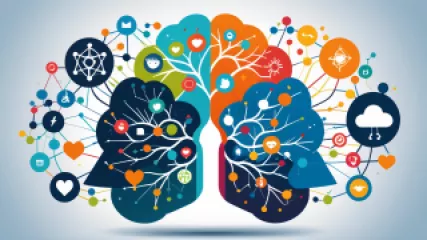Deconstructing Brand Perception: A Psychological Analysis
When it comes to consumer behavior and decision-making, brand perception plays a crucial role. The way individuals perceive brands can greatly influence their purchasing decisions and overall loyalty to a particular company or product. But what exactly shapes brand perception? How do our minds process and interpret the messages conveyed by brands? In this opinion piece, we will delve into the psychology behind brand perception and explore the different factors that contribute to how we perceive and interact with brands.
The Power of Brand Perception
Brand perception refers to the way consumers view and interpret a brand. It encompasses various aspects such as brand image, brand personality, and brand associations. A positive brand perception can lead to increased customer loyalty, advocacy, and ultimately, higher sales. On the other hand, a negative brand perception can have detrimental effects on a company's reputation and bottom line.
Consumers develop perceptions of brands through their experiences, interactions, and exposure to marketing messages. These perceptions are shaped by a combination of cognitive processes, emotions, and social influences. Understanding the psychology behind brand perception can help marketers create strategies that resonate with their target audience and positively influence their perception of the brand.
The Role of Cognitive Biases
Cognitive biases are inherent mental shortcuts that our brains use to process information quickly. They greatly influence how we perceive and make decisions about brands. One common cognitive bias is confirmation bias, which leads individuals to seek out information that confirms their existing beliefs or opinions about a brand. For example, if someone believes that a certain brand is high-quality, they may actively look for evidence to support that belief while ignoring contradictory information.
Another cognitive bias that impacts brand perception is the halo effect. This bias occurs when individuals generalize their positive or negative impression of one aspect of a brand to its overall perception. If a consumer has a positive experience with a brand's customer service, for instance, they may extend that positive impression to other aspects of the brand, such as its product quality or ethical practices.
The Influence of Emotional Associations
Emotions play a significant role in shaping brand perception. Brands that evoke positive emotions are more likely to be perceived favorably by consumers. Take, for example, the emotional connection that people have with certain luxury brands. These brands often evoke feelings of exclusivity, status, and pleasure, which contribute to their perceived value and desirability.
Emotional associations can also be created through storytelling and brand narratives. By crafting compelling stories that tap into consumers' emotions, brands can establish deeper connections and forge stronger relationships with their target audience. This emotional resonance can lead to increased brand loyalty and advocacy.
Social Influences on Brand Perception
Our perception of a brand is not solely based on our individual experiences and emotions. Social influences, such as peer recommendations, social media, and cultural norms, also play a significant role in shaping our perception of brands.
Word-of-mouth marketing, for instance, can greatly impact brand perception. When individuals receive positive recommendations from friends or family members, they are more likely to develop a favorable perception of the recommended brand. Similarly, social media platforms provide consumers with a platform to share their experiences and opinions about brands, influencing the perceptions of others.
Mindfulness Techniques for Brand Perception
As consumers, being aware of the factors that shape our brand perception can empower us to make more informed decisions. Practicing mindfulness techniques can help us become more conscious of our own biases and emotions when interacting with brands.
One mindfulness technique that can enhance brand perception is mindful consumption. By being fully present and attentive when engaging with a brand, we can better evaluate its messages, values, and impact. This allows us to make conscious choices aligned with our personal values and preferences.
Another mindfulness technique is self-reflection. Taking the time to reflect on our own beliefs, biases, and emotional responses to brands can help us gain insight into why we perceive certain brands in a particular way. This self-awareness can enable us to challenge and reshape our brand perceptions if desired.
Conclusion
Brand perception is a complex interplay of cognitive processes, emotions, and social influences. By understanding the psychology behind brand perception, both marketers and consumers can navigate the world of brands more effectively. Marketers can leverage cognitive biases, emotional associations, and social influences to shape positive brand perceptions, while consumers can practice mindfulness techniques to become more aware of their own perceptions and make informed choices. Ultimately, brand perception is not only about the products or services a brand offers but also about the psychological connections and meanings that consumers attach to them.






